For them, having more is an inalienable right
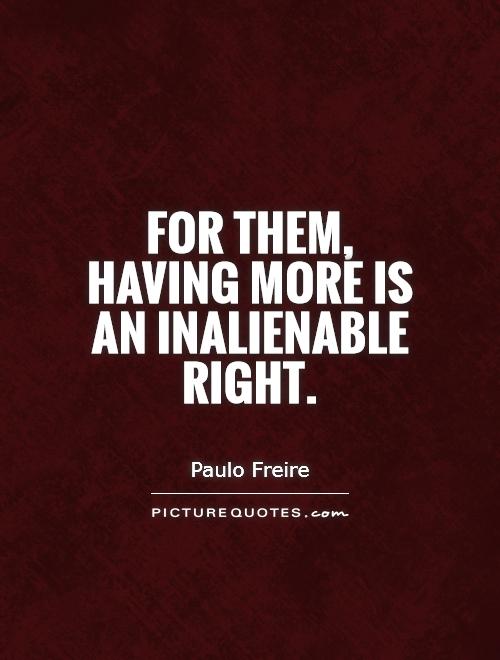
For them, having more is an inalienable right
Paulo Freire, a Brazilian educator and philosopher, is best known for his work on critical pedagogy and the concept of conscientization. In his seminal work, "Pedagogy of the Oppressed," Freire explores the idea that education is a tool for liberation and empowerment, particularly for marginalized and oppressed communities. One of the key themes that Freire addresses in his work is the idea that having more is an inalienable right for all individuals, regardless of their social or economic status.Freire argues that the capitalist system perpetuates inequality and exploitation by promoting a culture of consumerism and materialism. In this system, those who have more wealth and resources are able to accumulate even more, while those who are marginalized and oppressed are left struggling to meet their basic needs. For Freire, this is a fundamental injustice that must be addressed through education and social change.
According to Freire, the belief that having more is an inalienable right is not just about material possessions, but about the right to live a dignified and fulfilling life. This includes access to education, healthcare, housing, and other basic necessities that are essential for human flourishing. In a society that values profit over people, Freire argues that it is crucial to challenge the status quo and work towards a more just and equitable world.
Freire's ideas have had a profound impact on the field of education and social justice, inspiring educators and activists around the world to fight for a more equitable and inclusive society. By emphasizing the importance of critical thinking, dialogue, and solidarity, Freire's work continues to be a powerful tool for challenging systems of oppression and advocating for the rights of all individuals.
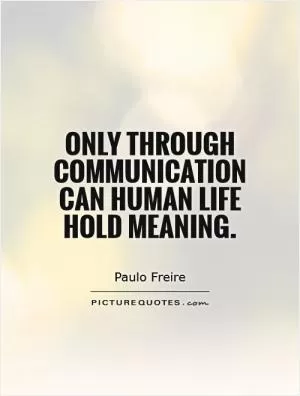
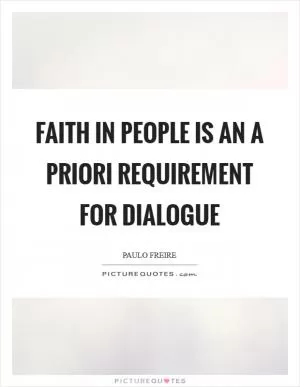
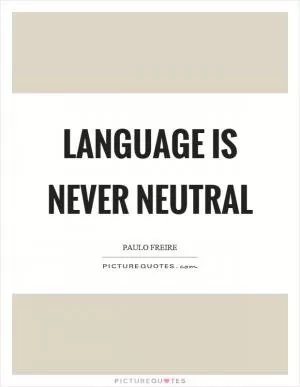
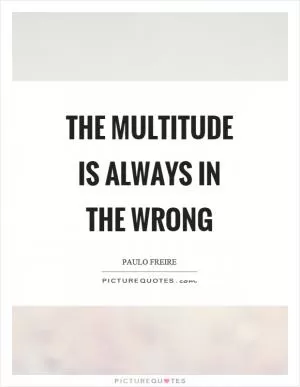
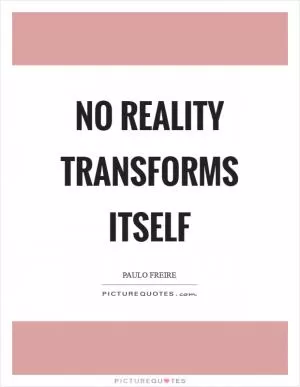
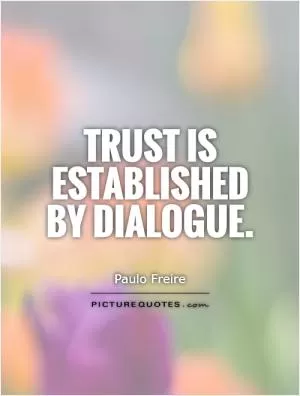
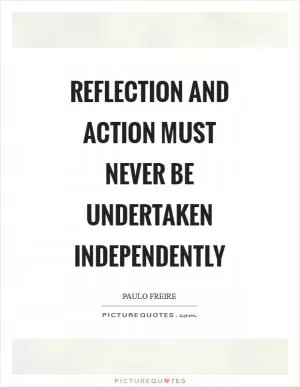
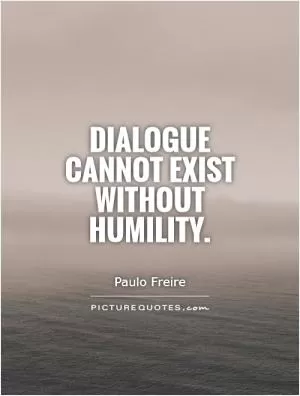
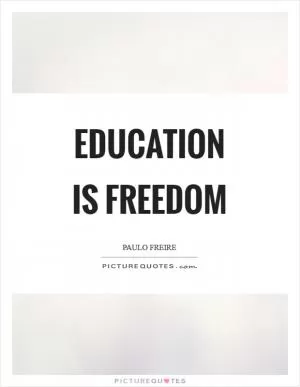
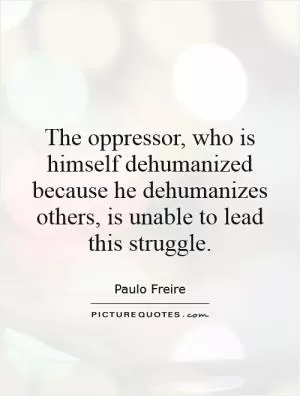
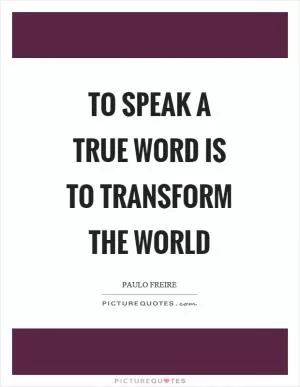
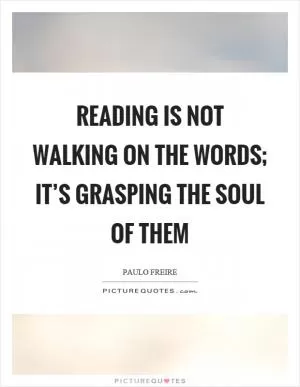
 Friendship Quotes
Friendship Quotes Love Quotes
Love Quotes Life Quotes
Life Quotes Funny Quotes
Funny Quotes Motivational Quotes
Motivational Quotes Inspirational Quotes
Inspirational Quotes